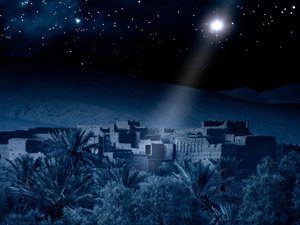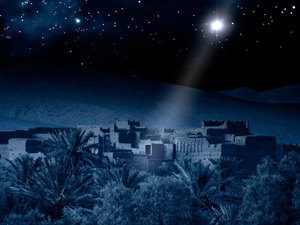
freebibleimages.org
The Catholic Church is experiencing a time of reform and renewal whose historical range we cannot yet measure. Pope Francis, following the spirit of the conclave that elected him, is reviewing the government of the Church, its resource management, the training of its pastors, and the way we take responsibility for and correct mistakes. Pastoral care of the family will be reviewed at the next synod and all this may bring changes in Church law. However, along with the institutional structures, the Pope is stressing the importance of an inner renewal which means a real transformation in the sensibilities of believers and bears a sign for all humanity: “I dream of a missionary option…capable of transforming everything,…customs, ways of doing things, times and schedules, language,” says Pope Francis.
Bethlehem is the place of simplicity and authenticity. In Bethlehem, everything is simple and true; there is no artifice. God reveals Himself beautifully and simply — a child wrapped in swaddling clothes, a manger, a star. The Son of God, God Himself, has been born to us and is a baby in a manger. The Truth is revealed transparently, without robes or tinsel, in swaddling clothes under the light of the stars.
Bethlehem ought to develop in us a sensitivity to what is authentic and simple, starting with naturally asking ourselves whether it might not be possible to celebrate and be happy with fewer things and giving ourselves more time to really get to know and recognize each other. The Church, in the words of the Pope, warns us of the emptiness of things and religiosity in appearance only. It’s time to “recover the original freshness of the Gospel.”
Bethlehem is also the school of trust and acceptance. The Savior of the world is a baby offered to the world, all acceptance and possibility. The child who didn’t find an inn in which to be born, receives shepherds and merchants out in the open. He doesn’t shut himself in or protect himself. In the event at Bethlehem, there are no protective walls. Bethlehem is “the open house of the Father.”
The sensibility of Bethlehem ought to lead us to “build bridges not walls” in relation to others. It ought to help free us from the violence and contempt with which we Peruvians can treat each other. Bring us as a Church to be more of a community — less concerned with requirements and sides, always trying to love more and judge less. A “Church which is bruised, hurting and dirty because it has been out on the streets”, trying to tend to others, to those who most need us.
It is the appropriate time to delve into a sensibility of the authentic. Although it is not always easy to accept our stories, humanly and spiritually we can not grow without being. Time to delve into the simple which might shimmer tentatively but never hides the beautiful and always prevents false connections and empty hopes. Time for a sensibility of trust and acceptance that “in contact with the concrete existence of others” shows us the “strength of tenderness”, makes injustice unbearable to us and reconciliation possible.
Let’s hope this meaning of Bethlehem impregnates much more our Christian way of being, that our ethics become enriched with criteria of authenticity, simplicity of life, and caring for others, and that it influences the way we organize our common life. So that, as the carols say, the whole year can be Christmas.
Tags: Acceptance, Bethlehem, Peru, Renewal, simplicity, Trust

